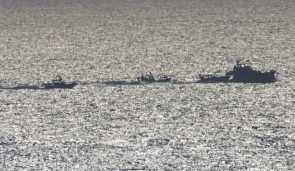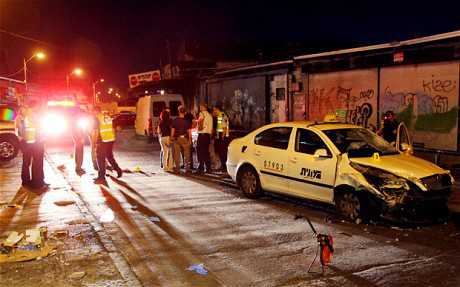Kurt Nimmo
In the video below, former four star general and NATO commander Wesley Clark talks about the neocon plan to invade seven countries in five years. Included in the plan was an attack on Libya. Clark mentions the plan at two minutes, 26 seconds into the video.
The video was recorded on October 3, 2007, at the Commonwealth Club of California in San Francisco.
Clark’s revelation is nothing new, although it reminds us that the attack on Libya fits into a larger context and there are horrific conflicts to come if the globalists have their way.
Following the election of Obama and a reshuffling of the same old deck in Congress in 2008, it was believed the bad old days of neocon wars were finally behind us. Obama said he would close down the wars and bring home the troops. Instead, he intensified the effort to spread chaos, mayhem and mass murder in the Middle East and South Asia, thus underscoring the fact there is absolutely no difference between Democrats and Republicans when it comes to creative destruction (it is telling that the neocon Michael Leeden has used the term – creative destruction is a Marxist concept).
Clark has talked about the neocon plan on several occasions. He said the following during a speech at the University of Alabama in October of 2006, recounting a conversation with a general at the Pentagon:
I said, “Are we still going to invade Iraq?” “Yes, Sir,” he said, “but it’s worse than that.” I said, “How do you mean?” He held up this piece of paper. He said, “I just got this memo today or yesterday from the office of the Secretary of Defense upstairs. It’s a… five-year plan. We’re going to take down seven countries in five years. We’re going to start with Iraq, then Syria, Lebanon, then Libya, Somalia, Sudan, we’re going to come back and get Iran in five years. I said, “Is that classified, that paper?” He said, “Yes Sir.” I said, “Well, don’t show it to me, because I want to be able to talk about it.”
The neocons, of course, are merely one of a number of establishment factions, all of them reading from the same script. Obama’s attack on Libya and the impending attack on Syria under the ruse popularly known as the “Arab Spring” (pushed by elite NGOs and the CIA) is interchangeable with the Bush regime’s call to action against the Axis of Evil. The only difference between Democrat Obama and the (supposedly) Republican neocons (who have roots in Trotskyism) is that the neocons are decidedly Israeli-centric in their geopolitical stance.
The global elite do not care about Israel or any other nation-state, but are not above using the neocons – who are highly organized and motivated (despite propaganda depicting them as inept) – in their quest to destroy Arab and Muslim nationalism that directly threatens their drive for hegemonic rule (in particular, Sharia law with its restrictions on banking poses a threat to the banksters).
Syria is the next target followed by the big Kahuna, Iran. For the globalists, who are determined to wreck all nation-states and eradicate national sovereignty and borders, the fact this effort will precipitate the destruction of the “world’s policeman,” the United States, is an extra added bonus.
Multiple wars in multiple and far-stretched “theaters” will ultimately bankrupt the United States, as Ron Paul and a handful of others have warned. Obama has made if perfectly clear that the U.S. will not leave Iraq and Afghanistan and plans to continue attacking Pakistan and failed states in Africa where the CIA cut-out al-Qaeda has appeared on cue.
Wesley Clark’s warning is prescient, but nearly a decade too late. Clark is, at best,disingenuous because he himself a war criminal for the role he played in the slaughter of civilians in Yugoslavia.
www.infowars.com, September 2, 2011





